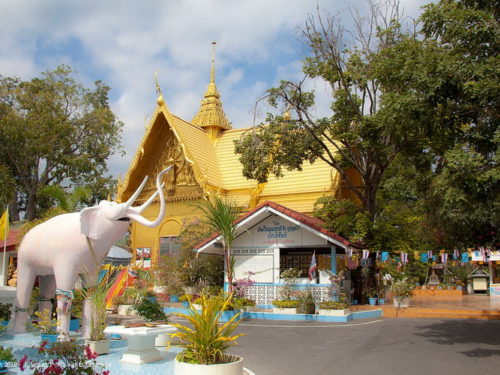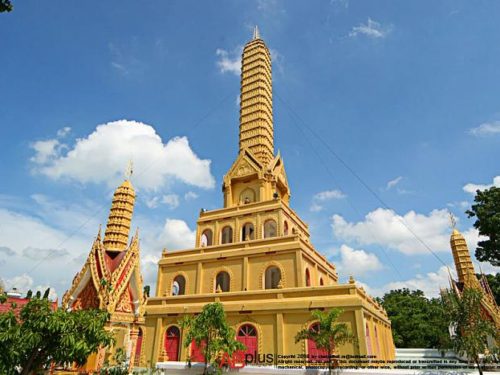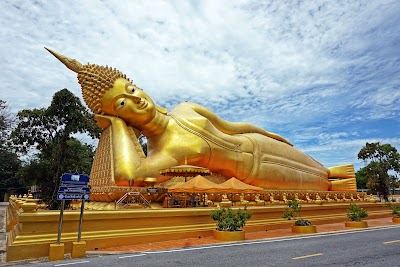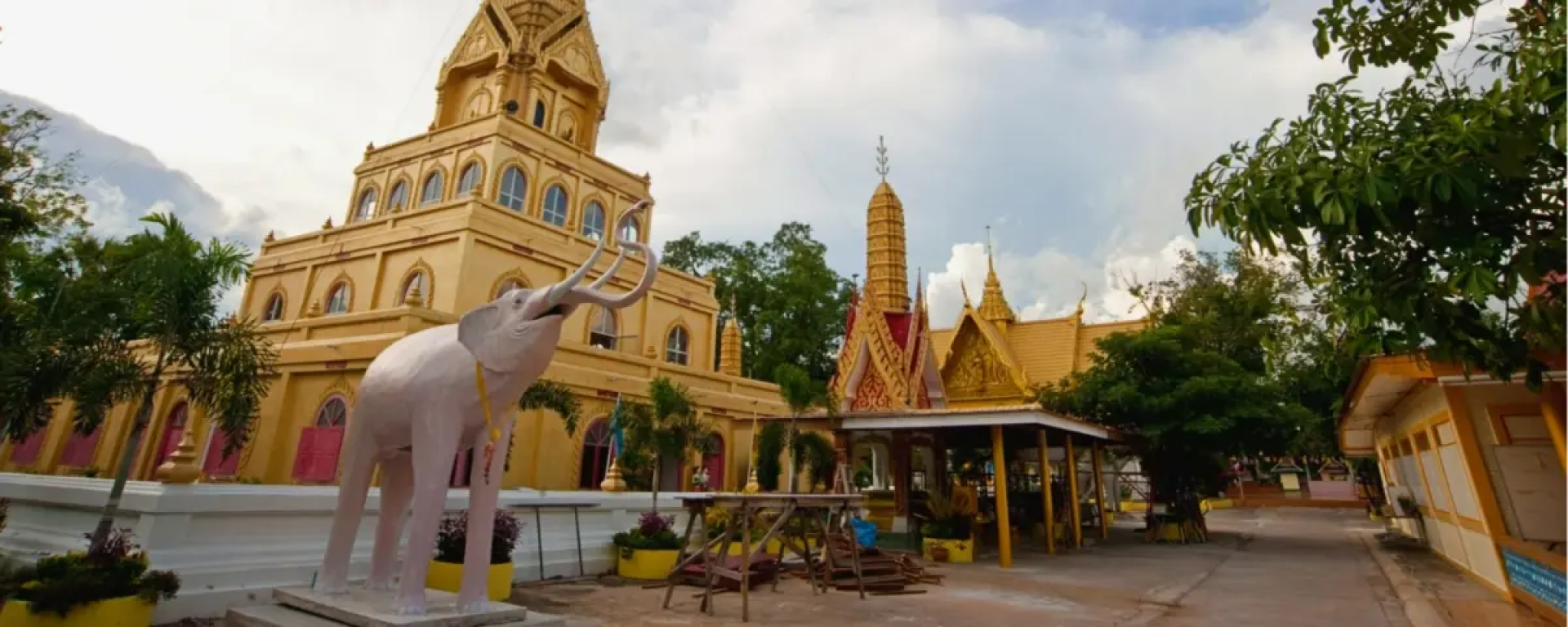It can be easily predicted from its name that this temple is famous for Phra Prang (a corn-shaped pagoda). Once the visitors arrive at this temple, they will see the remarkably gold color reflecting the sunlight. The pagoda is tall and large in a square shape but is slender at the top. Around the pagoda are many statues of deity, such as Brahma, Guan Yin, Thao Wessuwan, Rahu, Katyayana, and Mae Nang Kwak. Near the pagoda are Luang Por Yen image hall and the ancient stucco statue of Luang Por Khao and Luang Por Nak.

There is no clear evidence about who established the temple and when it was established. However, the legend has it that, in 1937, a monk on pilgrimage set a long-handled umbrella at the temple and started praying there. He also invited holy water from Luang Por Yen, which has only head with no body and name, at that time, in order to cure the villagers from diseases and to bring "Kwam Rom Yen Pen Suk" (peace and happiness) to them.
Therefore, everyone liked to call him Luang Por Yen, which was derived from Rom Yen Pen Suk, until present. It is also predicted that the temple was built in the late Ayutthaya period.Apart from Phra Prang and Luang Por Yen that the villagers widely worship, there is also the principal Buddha image enshrined in the glitteringly golden ordination hall. The principal Buddha image is called Phra Phukhao Thong.

In the teaching hall, Luang Por Yai Chai Mongkol, or Phra Buddha Nimit Pichit Marn Maha Chakkapat, is housed. There are also a sacred well, beside the image hall, as well as Nariphon trees. The model of Nariphon trees is located near Chao Mae Takhian Thong Shrine. Behind the image hall is a Bodhi tree whose trunk houses Phra Phut (a half body of Buddha image which seems to rise from the ground).
In addition, inside the chapel, there are a lot of beautiful mural paintings created by Mr. Peng, a Laotian, around 1919. The paintings depict the story of hell, heaven, Buddha's life, and Jakata (the former incarnations of Buddha).It is said that this temple is lively and has many interesting things to visit. If there are any chances, the visitors should not miss visiting this temple. It is also open as a place for practicing the Dharma.

Direction: it is located in Muangmoo Sub-district, opposite to Sing Buri College of Agriculture. There is a large blue arch with the temple's name at the entrance. The temple is approximately at the 134th -135th kilometer marker from the city center along the highway number 32 (the road to Phrom Buri District).

